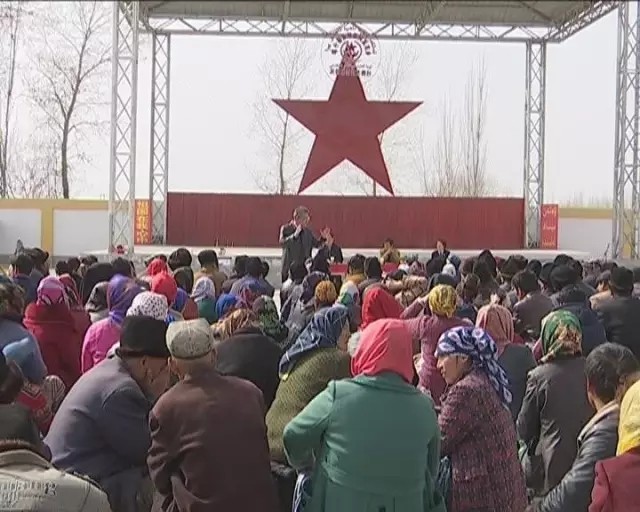
China’s plans to build “re-education” camps came to light in late 2016 and several months later the camps began popping up in the Uyghur region. By October 2017, approximately 4000 (13 percent) of the 30,000 people in the town of Purchakchi in Hoten, 3214 (10 percent) of the 32,000 people in the town of Bulaksu in Kashgar, and more than 2000 from Yengisar, Kashgar had been detained. In December, reports from Korla suggested every day pproximately 500 Uyghurs were forced to stand in line to await detention in the “re-education” camps. The camps in Korla are so overcrowded that people are forbidden from sleeping on their backs and must sleep on their sides.
The town of Aksaray in Karakash district is missing almost half of its population as 40 percent of the town’s residents are in detention. There are reports of the “re-education” camps in almost all towns and cities in the Uyghur region, with at least four areas confirmed. Each camp may hold at least 1000 and at most 10,000 detainees. Most of the information about these camps have come from independent sources –especially US based Radio Free Asia’s Uyghur service. The information is often confirmed by authorities, police, victims, and prominent figures.
The Uyghur region consists of 24 cities and 62 districts. It’s estimated that China maintains up to 500 “re-education” camps in the region and on average each camp detains at least 2000 people. The number and average size of camps suggest that tens of thousands and possibly close to a million Uyghurs may in detention. Reports about the closure of almost a third of the stalls and stores at the Hoten Grand Bazaar and transfer of large groups of Karakash women for forced labor in other districts suggest that the seemingly shocking estimates of detention are not an exaggeration.
While Chinese media has not adequately reported on the camps and the number of detainees, the state media has not denied reports from independent sources either. A state media broadcast defended the need for the “re-education” camps, stating they were necessary to cure individuals from extremist ideology and correct their political ideology. However, various sources have revealed that individuals are taken to these camps with black sacks over their heads and are not permitted outside of the camps.
Individuals may be interrogated violently before taken to the camps so as to establish their “crime,” for which they will receive legal lectures and be required to write statements of repentance. Chines authorities have referred to the camps as “re-education centers,” but the camps have been maintained under various other labels –including “Civilian School,” “Rule of Law School,” “Mercy School,” “National Language School,” “Vocational Training School,” – in different cities and districts. International media coverage of the detention centers has referred to them as “re-education” camps.
China’s interpretation of extremism has been absurdly broad. In mid-2017, 67-year-old Tursun Memet –a resident of Yengisar, Kashgar –was arrested and sentenced to 10 years in prison for scolding his son 13 years ago for drinking alcohol. Another Yengisar resident, Vahab Tursun, was also sentenced to 10 years in prison for having his ex-wife wear long dresses. Horigul Nasir, also a Yengisar resident, was also sentenced to 10 years for allegedly telling her friend not wearing a headscarf was sinful –even though Horigul’s brother said his sister herself did not wear a headscarf. The arbitrary detention and imprisonment of Uyghurs suggest that the “re-education” camps in the Uyghur region are detention and punishment centers designed to further oppress the Uyghur people.
More recent news suggests that the conditions in the detention centers are desperate as four deaths have been reported in just a month in one camp alone.
China has credit the “re-education” camps to the decline in violent incidents, stating that aside from two incidents in early 2017, the region has been stable. The regime has suggested its intent to continue to maintain and expand “re-education” camps to maintain stability. For more detailed information about the “re-education” camps in the Uyghur region, click here.
